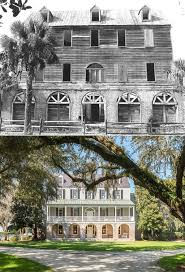

by Cynthia Andrews
Meet
Quash Stevens
Kiawah, a Microcosm of Southern History
The character of Quash is a vital addition to Engel's story as a reminder of all the important contributions made by the African American community in South Carolina. Plantation slavery in the South Carolina coastal area was established in the late 1600s, and by 1770, more than 80,000 enslaved people lived in the colony under British rule. During those years, they cultivated indigo, rice, and cotton. Many patriot-owned plantations were destroyed during the American Revolution by British troops. Arnoldus Vanderhorst II, the former governor and patriot who served under Francis Marion, was among those who lost his plantation at Kiawah in 1780. The following year, Arnoldus and his wife Elizabeth Raven had a son named Elias Vanderhorst, who would grow up to see his father's fortune restored and lost once again due to investment in Confederate war bonds. In 1835 Elias and his wife Ann had a son named Anoldus IV.
Born into slavery between 1840 and 1843, Quash Stevens was the half-brother of Arnoldus Vanderhorst IV. Both men, barely 6 years apart, were the sons of Elias Vanderhorst and the grandson of Arnoldus Vanderhorst II by a different mother. Quash Stevens grew up with his African mother as a slave on the Ashapoo River plantation called Round O, where he learned how to read and write
In August 1864, Ann Vanderhorst made a deed out to her son, Arnoldus IV, to "give and deliver unto him my slave, a Mulatto Man, named Quash." After Anoldus died in a hunting accident in 1881, Quash was solely responsible for the Kiawah plantation. Quash remained loyal to the family of his father during reconstruction. Only eighteen of the many letters Quash wrote to his family survive today, but they remain a window into the life of a former slave living on the island of Kiawah.
The letters reveal the voice of a man who took pride in his family name, but the relationship he wanted with that family was not reciprocated. The letters do give us an accurate account of the great hurricane of 1893 and the daily details concerning the condition of crops, the weather, and the well-being of the workers.
Quash also witnessed the outcome of the Civil War and the occupation of Union troops on Kiawah and other sea islands. At first, the emancipated African Americans celebrated their freedom by building community institutions like schools, banks, and businesses. They also participated in public political life. In 1907, Quash's grandson, Harold Arnoldus Stevens, was born on his grandfather's plantation, Seven Oaks. Stevens purchased his own plantation, Seven Oaks on Johns Island, in 1901 for $3,000. He sold Seven Oaks in 1909 and died less than a year later. His grandson, Harold Arnoldus Stevens, became the first African American to serve on the New York State Supreme Court.
I can only imagine how Quash would have loved to have seen his grandson at his swearing-in ceremony. By the end of his lifetime, Quash had witnessed mankind at its worst and at its best.
Read his letters:
https://www.sciway.net/hist/chicora/quash-2.html
https://www.sciway.net/hist/chicora/quash-3.html
Read more about the Vanderhorst family at Kiawah:
https://kica.us/news/the-early-vanderhorsts-of-kiawah/
https://en.wikipedia.org/wiki/Arnoldus_Vanderhorst
https://south-carolina-plantations.com/charleston/kiawah.html
https://history.nycourts.gov/biography/harold-arnoldus-stevens/
https://www.sciway.net/hist/chicora/quash-1.html
https://www.historycrunch.com/slave-plantations-in-the-united-states.html#/
https://www.nps.gov/articles/reconstruction-era-african-american-schools-in-the-south.htm
https://civilwartalk.com/threads/our-ladies-of-beaufort-south-carolina-and-the-islands.120271/














